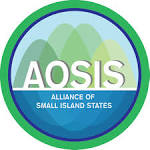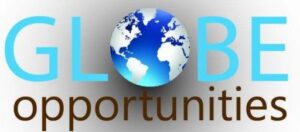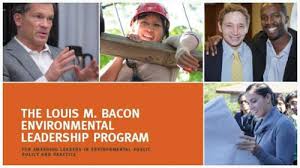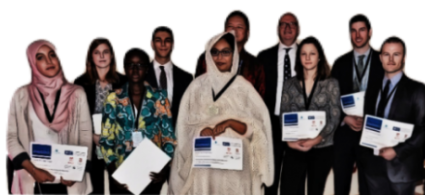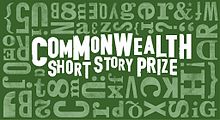
Deadline: 1 November 2017 (11.59pm in any time zone)
About the Prize
The Commonwealth Short Story Prize is an annual award for unpublished short fiction administered and funded by the Commonwealth Foundation.
The Commonwealth Short Story Prize is part of Commonwealth Writers, the cultural initiative of the Commonwealth Foundation.
The prize covers the Commonwealth regions of 1. Africa, 2. Asia, 3. Canada and Europe, 4. Caribbean and 5. Pacific.
The international judging panel comprises one judge from each of the five regions. Please note that while the entries will be judged regionally, all judges will read and deliberate on entries from all regions.
There will be five winners, one from each region. One regional winner will be selected as the overall winner.
Benefits
The overall winner of the Commonwealth Short Story Prize will receive £5,000 and the remaining four regional winners £2,500. If the winning short story is a translation into English, the translator will receive additional prize money.
The final selection will be judged by an international judging panel; experienced readers will assist the named judges in selecting the long lists.
Eligibility
- Entrants must be citizens of a Commonwealth country – please see Section 4 for the list of Commonwealth countries. The Commonwealth Foundation will request verification of citizenship before winners are selected. Writers from non-Commonwealth countries (including the Republic of Ireland and Zimbabwe) are not eligible.
- For regional purposes, entries will be judged by country of citizenship. Where the writer has dual citizenship, the entry will be judged in the region where the writer is permanently resident.
- Entrants must be aged 18 years or over on 1 November 2017.
- There is no requirement for the writer to have current residence in a Commonwealth country, providing she/he is a citizen of a Commonwealth country.
- All entries will be accepted at the discretion of the Commonwealth Foundation which will exercise its judgement, in consultation with the prize chair as necessary, in ruling on questions of eligibility. The ruling of the chair on questions of eligibility is final, and no further correspondence will be entered into.
Entry rules
- Entries including those in translation must be made by the writer.
- Entries will only be accepted via the online entry form.
- The deadline for receipt of entries is 1 November 2017 (11.59pm in any time zone).
- Only one entry per writer may be submitted for the Commonwealth Short Story Prize.
- The story must be the entrant’s own work.
- The story must be original and should not have been published anywhere in full or in part before 1 May 2018. Published work is taken to mean published in any printed, publicly accessible form, e.g. anthology, magazine, newspaper. It is also taken to mean published online, with the exception of personal blogs and personal websites.
- Entries previously submitted to the Commonwealth Short Story Prize are not eligible.
- Entries should be submitted in English, with the following exceptions: writers from Mozambique who write in Portuguese, and writers who write in Bengali, Chinese, Kiswahili, Malay, Samoan, Tamil and who do not have an English translation of their story, may submit their stories in the original language. Translations of short stories written in other languages are eligible if submitted by the writer (not the translator) and provided the translator is also a citizen of a Commonwealth country.
- Entries must be 2,000 words minimum, 5,000 words maximum.
- Entries should be uploaded in a PDF document. Please save your document as a PDF and use the title of the story as the file name. Please note the story must not be saved as ‘Commonwealth Story’, ‘Short Story’ or any other generic title. If it is not possible to save the entry as a PDF document, it may be uploaded as a Microsoft Word document, with the file name in the same format as above. The first page should include the name of the story and the number of words.
- The author’s details should be included on the entry form. They must not be given anywhere on the uploaded document. All entries are judged anonymously.
- Where applicable, the translator’s details should be included on the entry form.
- All entries should be submitted in Arial 12 point font and double line spacing. All pages should be numbered and include a header with the title of the story.
- There are no restrictions on setting, genre or theme.
- The story should be adult fiction and must not have been written for children alone.
- Entrants agree as a condition of entry that the prize organisers may publicise the fact that a story has been entered or shortlisted for the Prize.
- Worldwide copyright of each story remains with the writer. Commonwealth Writers will have the unrestricted right to publish the winning stories (the overall winning story and the four regional winning stories) in an anthology and for promotional purposes.
- The overall and regional winners will be expected to take part in publicity activities including social media where possible.
- The overall and regional winners will be expected to undertake a mutually acceptable programme of regional outreach activities to develop and promote Commonwealth Writers.
Prize regions
Africa: Botswana, Cameroon, Ghana, Kenya, Lesotho, Malawi, Mauritius, Mozambique, Namibia, Nigeria, Rwanda, Seychelles, Sierra Leone, South Africa, Swaziland, Tanzania, Uganda, Zambia. Overseas Territories: St Helena, Tristan Da Cunha, Ascension Island.
Asia: Bangladesh, Brunei Darussalam, India, Malaysia, Maldives, Pakistan, Singapore, Sri Lanka.
Canada and Europe: Canada, Cyprus, Malta, United Kingdom. Overseas Territories: Gibraltar, Falkland Islands.
Caribbean : Antigua and Barbuda, Bahamas, Barbados, Belize, Dominica, Grenada, Guyana, Jamaica, St Kitts and Nevis, St Lucia, St Vincent and the Grenadines, Trinidad and Tobago. Overseas Territories: Anguilla, Bermuda, British Virgin Islands, Cayman Islands, Montserrat, Turks and Caicos Islands.
Pacific: Australia, Fiji, Kiribati, Nauru, New Zealand, Papua New Guinea, Samoa, Solomon Islands, Tonga, Tuvalu, Vanuatu. Overseas Territory: Pitcairn.
Eligibility and entry rules
Please read these eligibility and entry rules before beginning the online entry process.
- The online form will be available from the opening date, 1 September 2017.
- Submission of an entry is taken as acceptance of the entry rules.
For any entry or eligibility queries not covered below, please email writers@commonwealth.int for clarification before submitting an entry.
